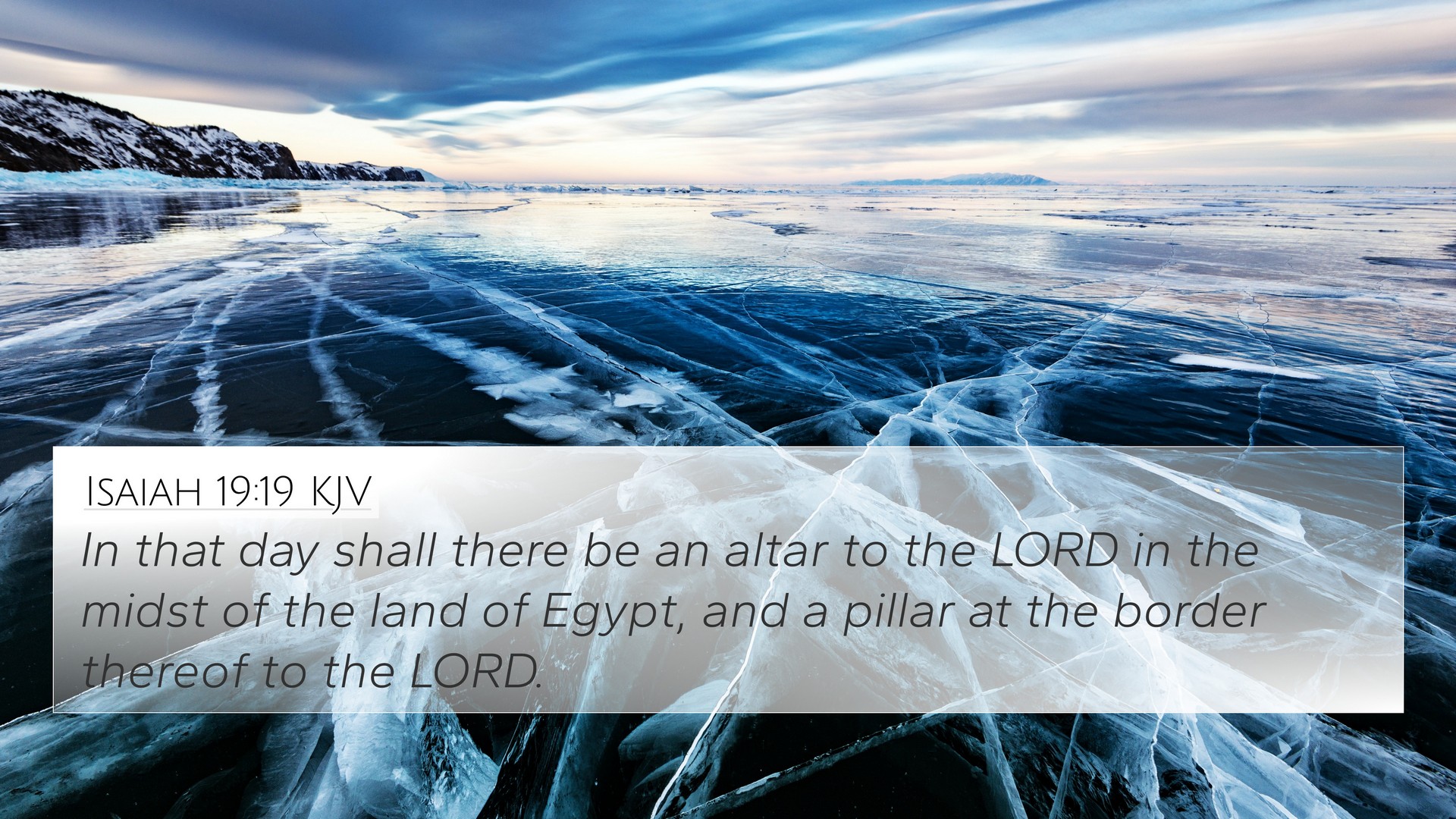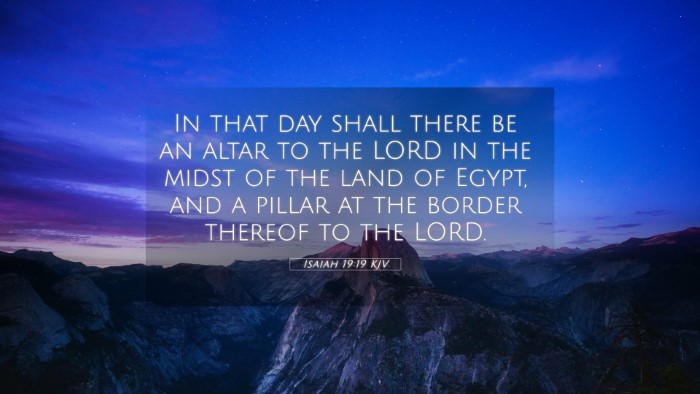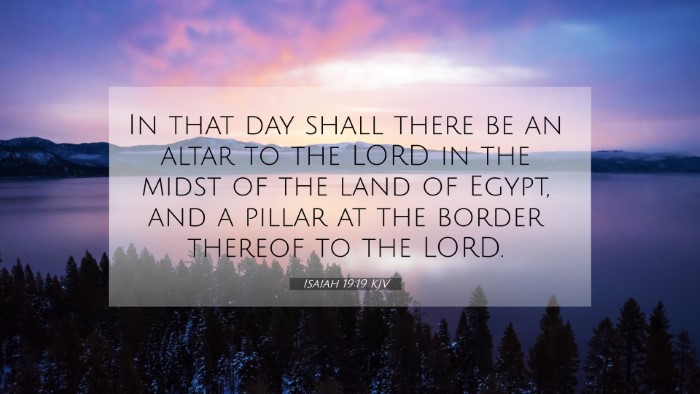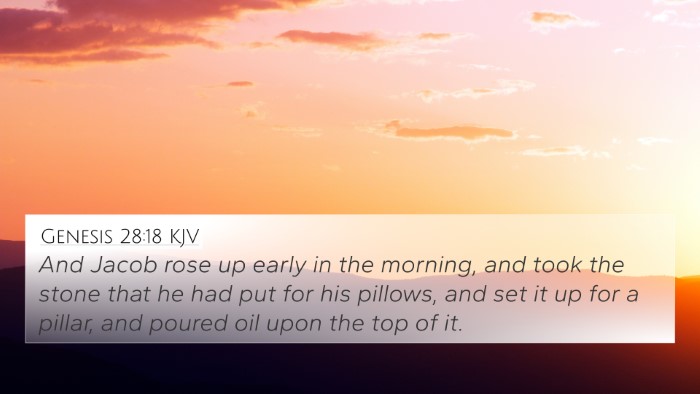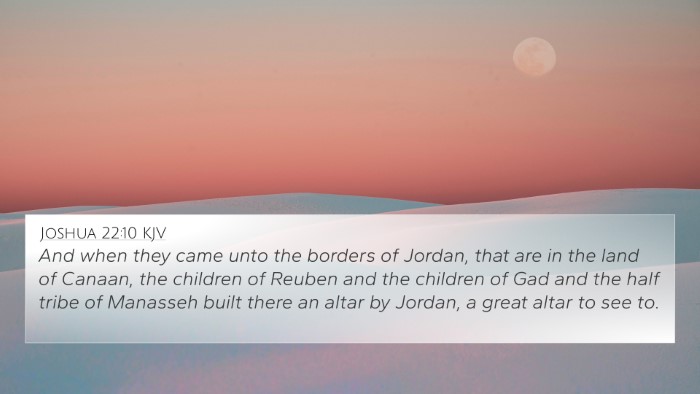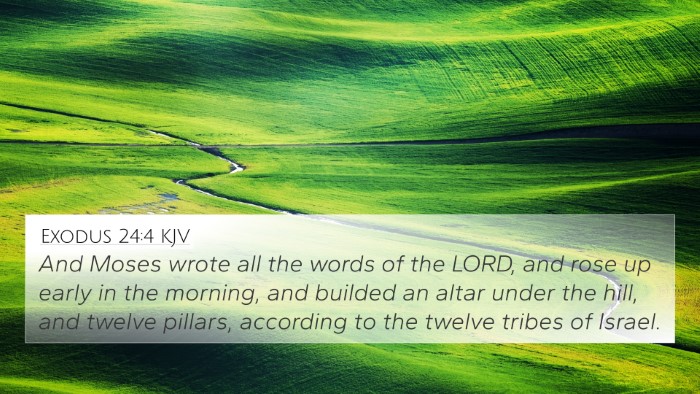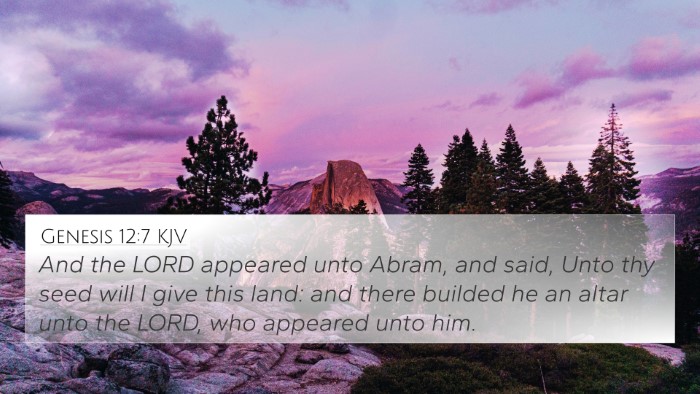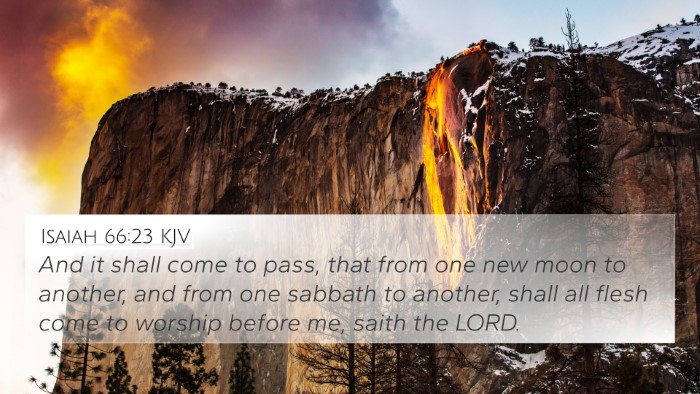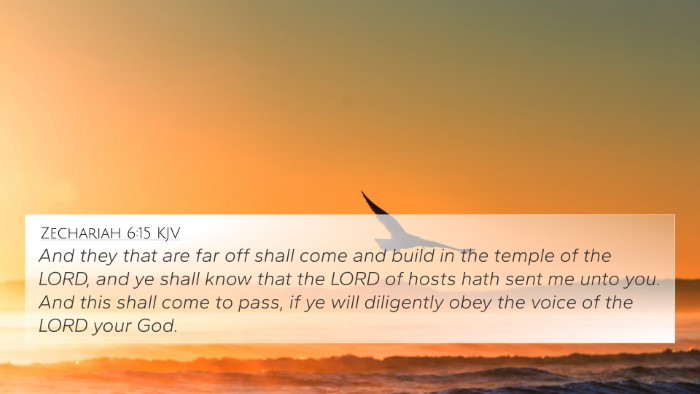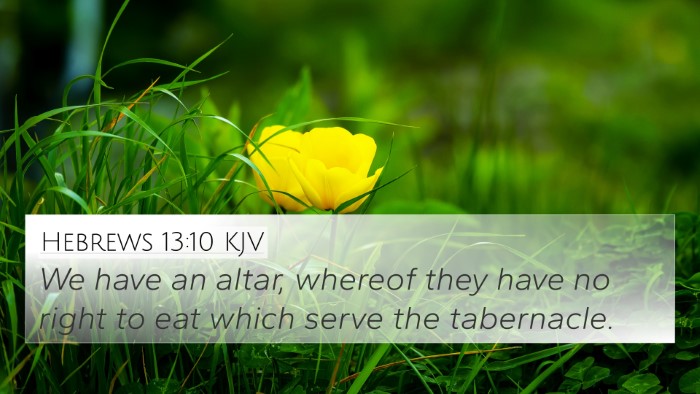Understanding Isaiah 19:19
Isaiah 19:19 states, "In that day there will be an altar to the Lord in the midst of the land of Egypt, and a pillar at its border to the Lord." This verse holds significant theological implications and foreshadows the eventual acknowledgment of God by various nations, including Egypt. Below is a summarized analysis based on public domain commentaries.
Commentary Insights
Matthew Henry's Commentary
Henry emphasizes the transformative nature of this prophecy, portraying a moment when the Egyptians will turn to God. The establishment of an altar signifies a place of worship and devotion, implying that the Egyptians, traditionally polytheistic, will recognize the sovereignty of the one true God. This act of spiritual awakening symbolizes hope for the nations and showcases God’s larger redemptive plan for humanity.
Albert Barnes' Notes
Barnes elucidates the historical context of the relationship between Israel and Egypt. The construction of the altar, in his view, reflects a profound change in the hearts of the Egyptians. It highlights how even those outside of Israel can come to worship the Lord. He also notes that this is a prophecy pointing towards the eventual universal worship of God, signifying the outreach of God’s grace beyond Israel.
Adam Clarke's Commentary
Clarke interprets the altar mentioned as a prophetic symbol indicating God's acknowledgment amongst the nations. He also discusses the significance of the 'pillar', which in ancient cultures often represented a memorial or testimony to a deity. By placing an altar and a pillar in Egypt, Isaiah prophesies a turning point where Egypt transitions from idolatry to recognizing God’s authority.
Cross-References to Isaiah 19:19
This verse can be connected with several other biblical passages that resonate with its themes of worship, acknowledgment of God, and the unification of nations under His authority:
- Zephaniah 3:9 - This verse talks about God restoring a pure language among the people to call upon the name of the Lord.
- Acts 2:21 - The passage speaks of all who call on the name of the Lord being saved, emphasizing universal access to God.
- Romans 10:12-13 - Discusses the idea that there is no distinction between Jew and Greek in the sight of the Lord, further affirming the invitation to all nations.
- Revelation 7:9 - Describes a great multitude from every nation, tribe, people, and language standing before the throne of God, signifying the culmination of this prophecy.
- Isaiah 56:6-7 - Reflects on the acceptance of foreigners to worship God, reinforcing the inclusion of all nations in worship.
- Isaiah 2:2-3 - This passage talks about the mountain of the Lord being established and nations streaming to it, echoing a similar theme of unity in worship.
- John 4:21-24 - Jesus speaks of true worshipers worshipping the Father in spirit and truth, transcending physical locations.
Thematic Connections
Isaiah 19:19 encapsulates several broader biblical themes:
- Transformation and Redemption: The movement from idolatry to true worship reflects God's redemptive purpose.
- Universal Kingdom: The verse alludes to a time when all nations will recognize and worship God, affirming the global scope of His kingdom.
- Inter-Biblical Dialogue: The linkages between Old Testament prophecies and New Testament fulfillment highlight the continuity and overarching narrative of Scripture.
Conclusion
Isaiah 19:19 serves as a powerful reminder of God’s desire for worship from all nations, emphasizing the inclusivity of His redemptive plan. The insights from commentators alongside the cross-references deepen our understanding of Scripture and its comprehensive narrative of worship and divine sovereignty.
Tools for Cross-Referencing
For those seeking to explore Bible verse connections further, consider using resources like a Bible concordance or a cross-reference guide. These tools can enhance your study by helping you identify thematic Bible verse connections and understanding the comparative analysis of scriptural themes.
